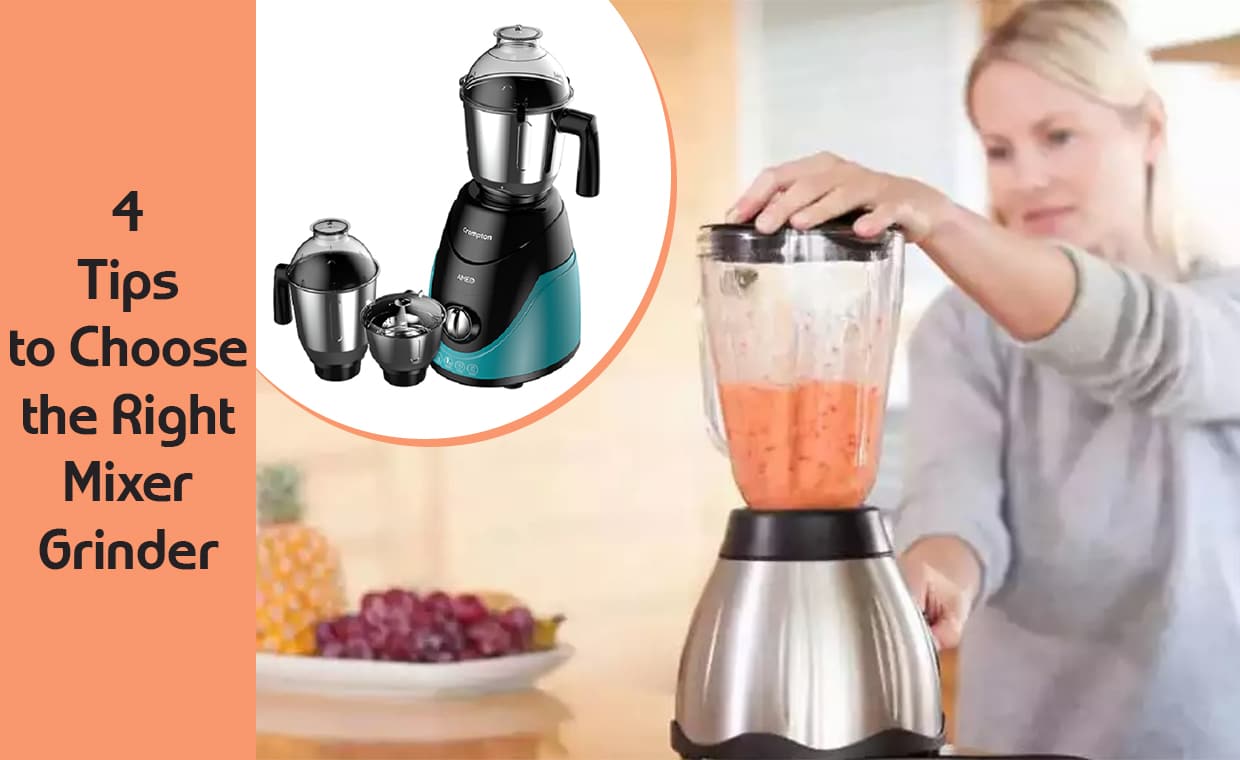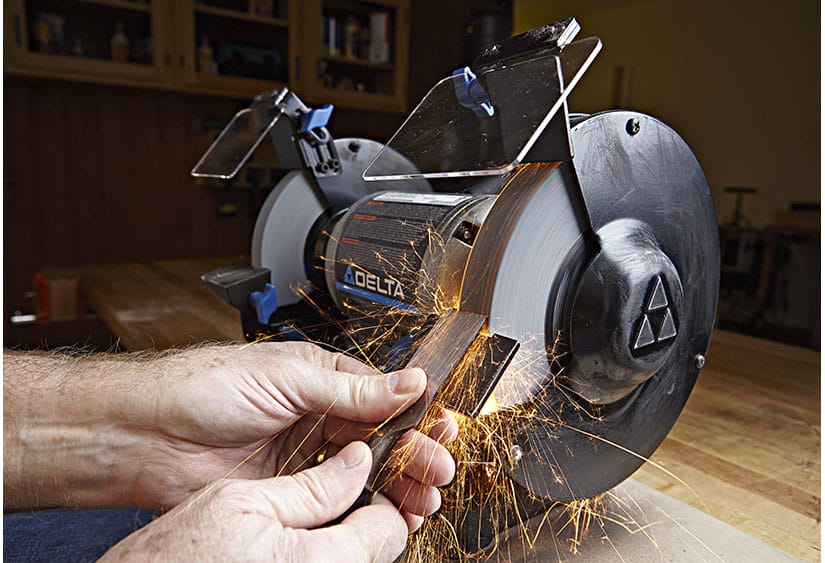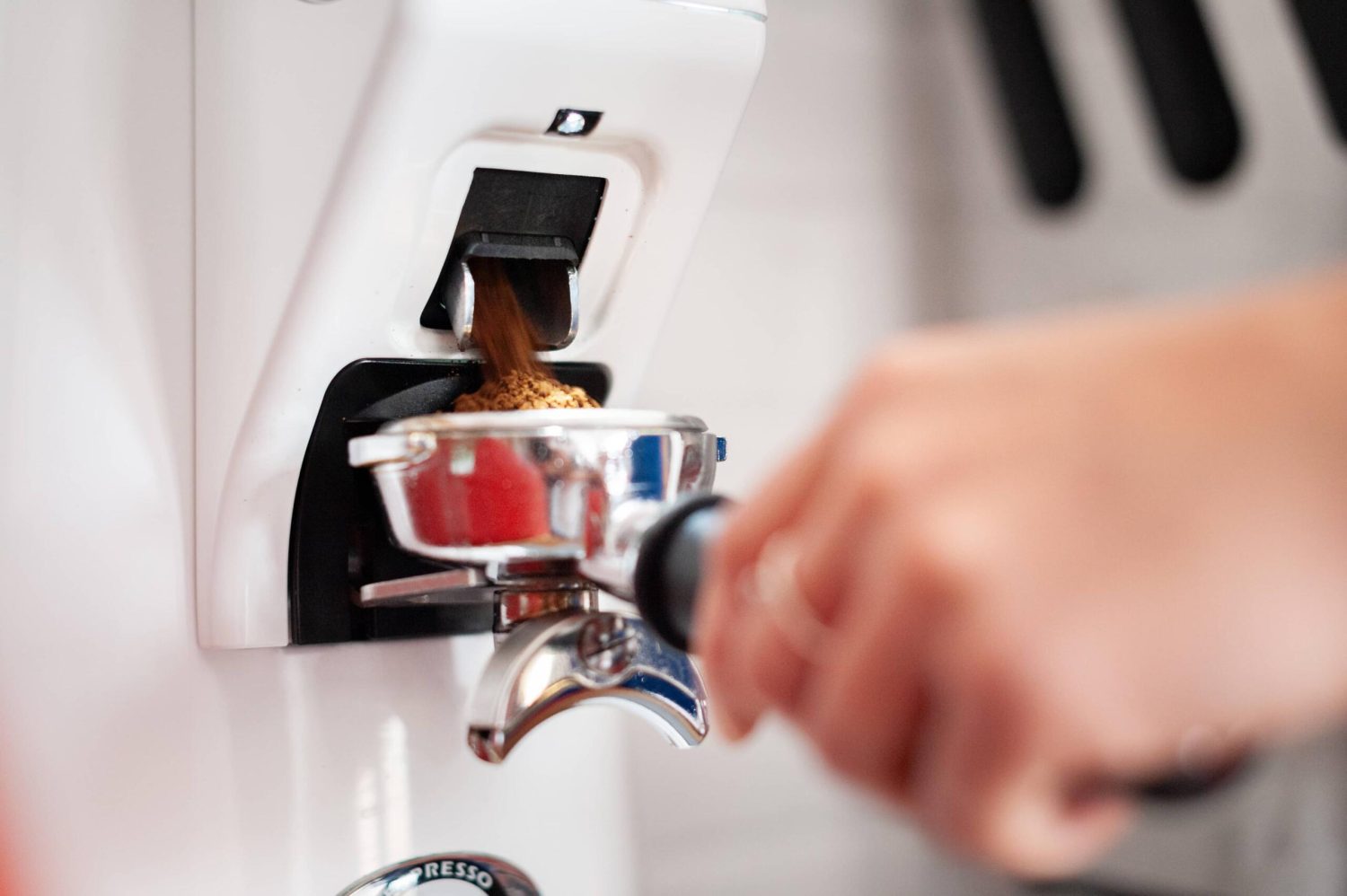Are you tired of buying pre-ground coffee and longing for the taste and aroma of freshly ground beans? Look no further! In this article, we will guide you on the journey of choosing the perfect grinder for your home. Whether you’re a coffee aficionado seeking a high-end, professional-grade grinder or a budget-conscious individual looking for a reliable option, we’ve got you covered. Say goodbye to mediocre coffee and let’s explore the world of grinders together!
Types of Grinders
Grinders are an essential tool for every coffee enthusiast. They help to unlock the full flavor potential of the coffee beans through the process of grinding. There are two main types of grinders available in the market – blade grinders and burr grinders. Each type has its own unique features and benefits, so it’s important to understand the differences between them before making a decision.
Blade Grinders
Blade grinders are the most common and affordable type of grinder available. They operate by using a spinning blade to chop the coffee beans into smaller pieces. These grinders are often compact and easy to use, making them a popular choice for many coffee lovers. However, they are not known for producing consistent grinds, which can affect the overall flavor of the coffee. Blade grinders are best suited for those who are just starting out with brewing coffee at home and are not too concerned about the precision of the grind.
Burr Grinders
Burr grinders, on the other hand, are known for their exceptional grind consistency. They use two abrasive surfaces, known as burrs, to crush the coffee beans into a uniform size. This results in a more even extraction and ultimately a better-tasting cup of coffee. Burr grinders offer a wide range of grind settings, allowing you to adjust the grind size to suit different brewing methods. While they tend to be pricier than blade grinders, the investment is well worth it for coffee aficionados who appreciate the finer details of brewing.
Considerations before Buying
When choosing a grinder for your house, there are several important factors to consider. These considerations will help ensure that you find a grinder that meets your specific needs and preferences.
Grinding Mechanism
The grinding mechanism is a crucial factor to consider when selecting a grinder. As mentioned earlier, blade grinders use a spinning blade, while burr grinders use burrs to crush the coffee beans. The burr grinder offers a more consistent grind, which is ideal for achieving optimal flavor extraction.
Grind Settings
The ability to adjust the grind size is essential for achieving the perfect cup of coffee. Burr grinders typically offer a wide range of grind settings, allowing you to fine-tune the grind size to suit different brewing methods such as espresso, drip, or French press. Blade grinders, on the other hand, usually have a simple on/off switch and offer little control over the grind size.
Capacity
Consider how much coffee you typically brew at once when deciding on the capacity of your grinder. If you only brew a single cup or a small batch, a grinder with a smaller capacity will suffice. However, if you often host gatherings or have a large family, it may be worth investing in a grinder with a larger capacity to accommodate larger brewing volumes.
Speed
The speed at which a grinder operates can impact the quality of the grind and the overall convenience of the grinding process. Blade grinders typically operate at a higher speed, which can generate heat and potentially affect the flavor of the coffee. Burr grinders, on the other hand, operate at a slower speed, allowing for a more consistent and controlled grinding process.
Size and Design
Consider the available space in your kitchen and the overall aesthetic of your home when choosing a grinder. Blade grinders are often compact and take up minimal counter space, making them a great choice for smaller kitchens. Burr grinders come in a variety of sizes, including compact and full-sized options, allowing you to choose the one that best fits your needs.
Budget
Lastly, consider your budget when selecting a grinder. Blade grinders are generally more affordable, while burr grinders tend to be pricier due to their superior grind consistency. Determine how much you are willing to invest in a grinder and choose one that offers the best value for your money.
This image is property of cloudfrontgharpediabucket.gharpedia.com.
Blade Grinders
Description
Blade grinders consist of a motorized unit with a sharp blade at the bottom. When the machine is turned on, the blade spins rapidly, slicing through the coffee beans. The longer the grinder runs, the finer the grind will be. Blade grinders are generally compact in size and easy to use, making them a popular choice for casual coffee drinkers.
Pros and Cons
One of the main advantages of blade grinders is their affordability. They are typically the most budget-friendly option available, making them accessible to a wide range of coffee enthusiasts. Blade grinders are also extremely user-friendly, with simple on/off switches and easy-to-clean designs.
However, blade grinders are not known for their grind consistency. The spinning blade can create uneven particle sizes, resulting in an inconsistent extraction and potentially affecting the overall flavor of the coffee. Additionally, blade grinders tend to generate heat during the grinding process, which can impact the flavor of the coffee.
Despite these drawbacks, blade grinders can still be a suitable option for those who are just starting out with brewing coffee at home and are not too concerned about achieving the highest level of grind consistency.
Burr Grinders
Description
Burr grinders, unlike blade grinders, use two revolving abrasive surfaces, known as burrs, to crush the coffee beans. The gap between the burrs can be adjusted to control the grind size, allowing for a consistent and precise grind. Burr grinders are available in both electric and manual variants, catering to different preferences and needs.
Pros and Cons
Burr grinders are well-known for their grind consistency, making them a favorite among coffee enthusiasts who prioritize the quality of their brew. The ability to adjust the grind size with precision allows for greater control over the extraction process, resulting in a more flavorful and balanced cup of coffee.
In addition to their superior grind consistency, burr grinders also offer a wide range of grind settings. This versatility makes them suitable for a multitude of brewing methods, from espresso to French press. Burr grinders also tend to operate at a slower speed, reducing heat generation and preserving the delicate flavors of the coffee beans.
However, the main drawback of burr grinders is their higher cost compared to blade grinders. The precision and quality of the grind come at a price, making burr grinders a more significant investment. Additionally, some burr grinders can be relatively large in size, requiring more counter space.
Despite these considerations, burr grinders are the go-to choice for those seeking the best possible flavor and consistency in their coffee. The investment in a burr grinder is well worth it for coffee lovers who are committed to brewing exceptional cups of coffee at home.
This image is property of www.reliancedigital.in.
Grinding Mechanism
The grinding mechanism is a critical aspect of a coffee grinder, as it directly affects the quality of the grind. Understanding the different types of grinding mechanisms can help you make an informed decision when choosing a grinder.
Blade
Blade grinders use a spinning blade to chop the coffee beans into smaller pieces. While blade grinders are simple and affordable, they are not known for producing consistent grinds. The spinning blade can result in uneven particle sizes, leading to an inconsistent extraction and potentially diminishing the flavor of the coffee.
Conical Burr
Conical burr grinders feature two cone-shaped burrs, with one burr fitting inside the other. As the coffee beans pass between the burrs, they are crushed to a consistent size. This type of grinder offers excellent grind consistency and is often favored by coffee connoisseurs.
Flat Burr
Flat burr grinders, as the name suggests, feature two flat burrs that grind the coffee beans between them. This design produces a slightly different grind profile compared to conical burrs. While both options offer excellent grind consistency, some coffee enthusiasts prefer flat burr grinders for specific brewing methods.
Grind Settings
The ability to adjust the grind size is crucial for achieving the desired flavor in your coffee. Different brewing methods require different grind sizes, so having a grinder with adjustable grind settings is essential.
Stepless
Some burr grinders offer stepless grind settings, allowing for infinite adjustments in grind size. This level of control makes it easier to dial in the perfect grind for your preferred brewing method. Stepless grinders are typically favored by experienced coffee enthusiasts who want complete precision over their grind settings.
Stepped
Stepped grinders, on the other hand, offer a predetermined number of grind settings. These settings are usually marked on a dial or a slider, allowing you to choose from a range of options. While stepped grinders may not offer the same level of precision as stepless grinders, they are still suitable for most brewing methods and are often more user-friendly.
The choice between stepless and stepped grinders ultimately depends on your brewing preferences and level of experience. If you enjoy experimenting with different brewing methods and grind sizes, a stepless grinder may be worth considering. However, if you prefer a straightforward and convenient approach, a stepped grinder may be more suitable.
This image is property of 2fast4buds.com.
Capacity
Consider the amount of coffee you typically brew when choosing the capacity of your grinder. The capacity refers to the amount of coffee beans that the grinder can hold at a time. There are generally three main categories: single serve, small family, and large family.
Single Serve
If you primarily brew coffee for yourself or occasionally make a single cup for guests, a grinder with a smaller capacity will suffice. Single-serve grinders can hold enough coffee beans to make one or two cups of coffee at a time, ensuring freshness and minimizing waste.
Small Family
For households with a few coffee drinkers, a grinder with a small to medium capacity is suitable. These grinders can hold enough coffee beans to make a few cups of coffee at once, providing convenience without excessive waste.
Large Family
If you have a large family or often host gatherings, investing in a grinder with a larger capacity is recommended. These grinders can hold a substantial amount of coffee beans, ensuring that you can brew multiple pots of coffee in one go.
Choosing the right capacity for your grinder will depend on your specific brewing needs. Consider how much coffee you typically consume in a day and how frequently you brew to determine the appropriate capacity for your household.
Speed
The speed at which a grinder operates can impact both the quality of the grind and the overall convenience of the grinding process. When considering the speed of a grinder, there are two main factors to consider: grinding speed and motor power.
Grinding Speed
Blade grinders typically operate at a higher speed due to their spinning blade mechanism. While this may seem advantageous in terms of efficiency, the high speed can generate heat during the grinding process. This heat can potentially affect the flavor of the coffee, leading to a less optimal brewing experience.
Burr grinders, on the other hand, operate at a slower speed. This slower speed allows for a more precise and consistent grind, ensuring that the beans are crushed uniformly. The slower speed is particularly beneficial for preserving the delicate flavors of the coffee beans, resulting in a more flavorful cup of coffee.
Motor Power
In addition to grinding speed, motor power also plays a role in the grinding process. A more powerful motor can grind the coffee beans more efficiently, reducing the overall grinding time. However, it’s important to note that a powerful motor doesn’t necessarily equate to better grinding quality.
When considering motor power, it’s crucial to balance efficiency with grind consistency. A high-powered motor may be convenient for grinding large quantities of coffee beans quickly, but it may not produce the desired grind consistency. It’s important to choose a grinder that strikes the right balance between motor power and grind quality.
This image is property of static.onecms.io.
Size and Design
The size and design of a grinder are important considerations, particularly in terms of practicality and aesthetics. Depending on the available space in your kitchen and your personal preferences, you may opt for a compact or full-sized grinder.
Compact
Compact grinders are often favored for their space-saving design. These grinders are smaller in size and take up minimal counter space, making them ideal for kitchens with limited room. Despite their smaller footprint, compact grinders can still pack a punch in terms of grinding capabilities.
Full-sized
Full-sized grinders, on the other hand, offer a larger capacity and may come with additional features. These grinders are suitable for those who have ample counter space and prioritize a robust grinding experience. Full-sized grinders often offer more advanced settings and grind options, catering to the preferences of seasoned coffee enthusiasts.
Aesthetics
In addition to practical considerations, aesthetic preferences may influence your decision when selecting a grinder. Grinders come in various designs, colors, and finishes, allowing you to choose one that complements your kitchen decor and personal style. From sleek stainless steel designs to vibrant pops of color, there is a grinder to suit every taste.
Budget
Finally, your budget will play a significant role in determining the type of grinder you can acquire. Grinders are available at different price points, offering a range of features and capabilities to fit various budgets.
High-end
High-end grinders tend to be more expensive but offer top-of-the-line features and exceptional grind consistency. These grinders often come with advanced settings, precision controls, and durable construction. If you are a serious coffee enthusiast or professional barista, investing in a high-end grinder may be a worthwhile long-term investment.
Mid-range
Mid-range grinders strike a balance between affordability and quality. They offer reliable performance, a good range of grind settings, and durable construction. These grinders are suitable for most home users who want to elevate their coffee brewing experience without breaking the bank.
Budget-friendly
Budget-friendly grinders are often the most accessible option for new coffee enthusiasts or those on a tight budget. These grinders offer basic functionality and are typically blade grinders. While they may not deliver the same level of grind consistency or precision as higher-end options, budget-friendly grinders can still provide a satisfactory brewing experience for casual coffee drinkers.
When determining your budget, consider the importance of grind consistency and the extent to which you want to customize your brewing experience. This will help you prioritize the features that are most important to you and make an informed decision within your budget.
In conclusion, choosing a grinder for your house requires careful consideration of various factors, from the type of grinder to your specific brewing needs and budget. Whether you opt for a blade grinder or a burr grinder, prioritize consistency, adjustability, and convenience to achieve the best possible cup of coffee. With the right grinder in hand, you can elevate your coffee brewing experience and savor the delicious flavors of freshly ground beans in the comfort of your own home.
This image is property of twochimpscoffee.com.










































